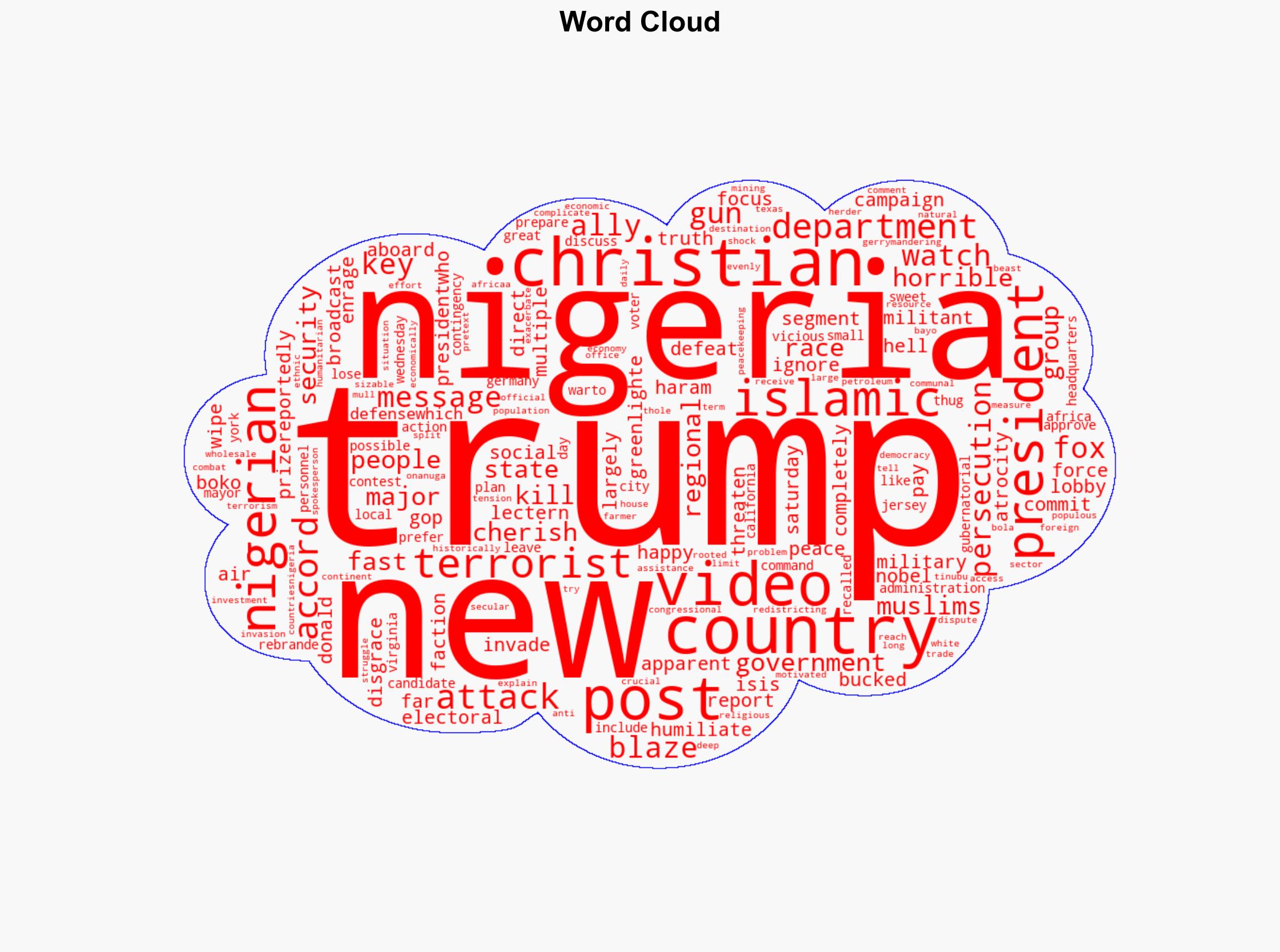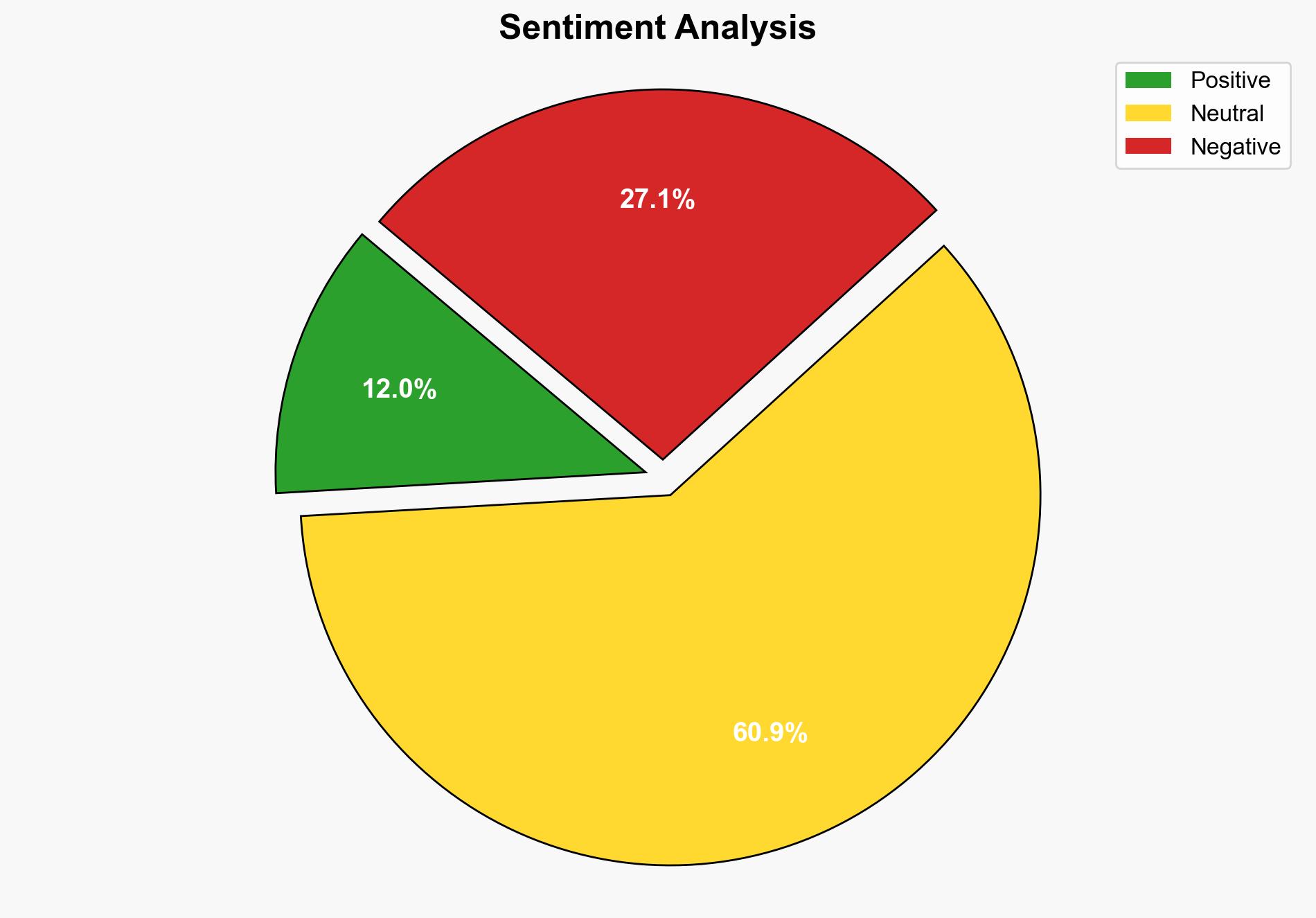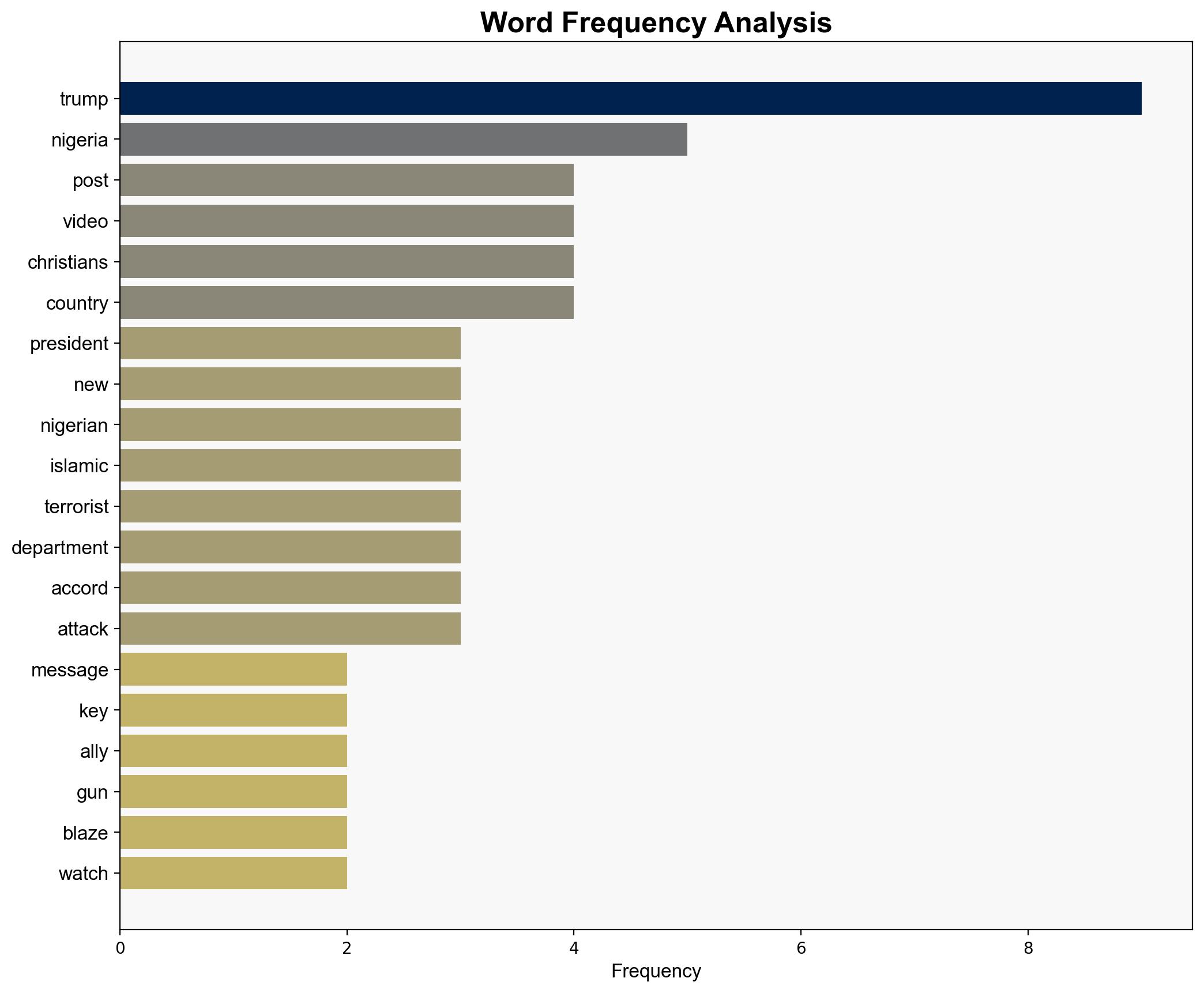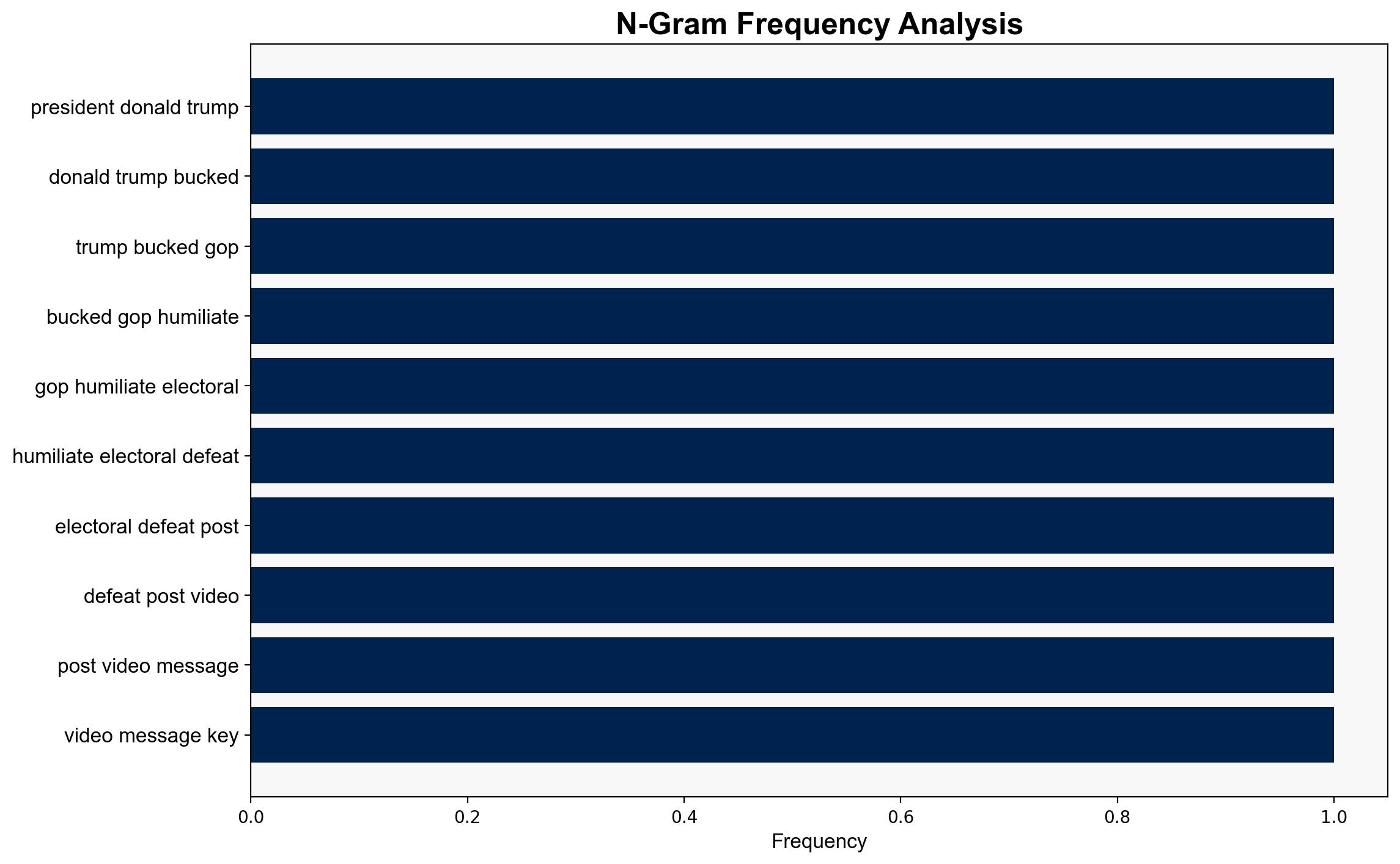Trump Ramps Up Wild Threat to Invade Ally Guns Blazing After Election Humiliation – Daily Beast
Published on: 2025-11-06
Intelligence Report: Trump Ramps Up Wild Threat to Invade Ally Guns Blazing After Election Humiliation – Daily Beast
1. BLUF (Bottom Line Up Front)
The most supported hypothesis is that Trump’s threat to invade Nigeria is a rhetorical strategy to regain political relevance and distract from recent electoral setbacks. Confidence level: Moderate. Recommended action: Monitor for any tangible military movements or policy shifts, while engaging diplomatically with Nigerian officials to mitigate tensions.
2. Competing Hypotheses
Hypothesis 1: Trump’s threat to invade Nigeria is primarily rhetorical, aimed at rallying his political base and distracting from domestic political failures.
– **Supporting Evidence:** The timing of the threat coincides with electoral defeats, suggesting a diversion tactic. Historical patterns show Trump’s use of strong rhetoric to galvanize support.
Hypothesis 2: Trump is genuinely considering military intervention in Nigeria due to perceived threats against Christians and geopolitical interests.
– **Supporting Evidence:** Trump’s history of unpredictable foreign policy decisions and the reported recall of personnel to discuss contingency plans could indicate serious consideration.
Using the Analysis of Competing Hypotheses (ACH) 2.0, Hypothesis 1 is better supported due to the lack of concrete military preparations and the timing aligning with political setbacks.
3. Key Assumptions and Red Flags
– **Assumptions:** It is assumed that Trump’s rhetoric is not backed by immediate military capability or intent. The assumption that his base will respond positively to such rhetoric is also untested in this context.
– **Red Flags:** Lack of corroborating evidence from other credible sources regarding military preparations. Potential cognitive bias in interpreting Trump’s statements as purely rhetorical without considering his history of unconventional decisions.
4. Implications and Strategic Risks
– **Geopolitical Risks:** Escalation of tensions with Nigeria, a key regional ally, could destabilize regional peacekeeping efforts and affect foreign investments.
– **Economic Risks:** Potential disruption in trade and investment flows between the U.S. and Nigeria, particularly in the petroleum and mining sectors.
– **Psychological Risks:** Heightened anti-American sentiment in Nigeria and broader African regions, potentially fueling extremist narratives.
5. Recommendations and Outlook
- Engage in diplomatic dialogue with Nigerian officials to clarify U.S. intentions and reassure them of continued partnership.
- Monitor social media and public statements for shifts in rhetoric or policy that could indicate a change in intent.
- Scenario Projections:
- Best Case: Rhetoric is dismissed, and diplomatic relations remain stable.
- Worst Case: Misinterpretation leads to military escalation and regional instability.
- Most Likely: Rhetoric fades without significant policy change, but diplomatic tensions persist.
6. Key Individuals and Entities
– Donald Trump
– Nigerian President Bola Tinubu
– Bayo Onanuga (spokesperson for Tinubu)
7. Thematic Tags
national security threats, geopolitical tensions, counter-terrorism, U.S.-Nigeria relations





